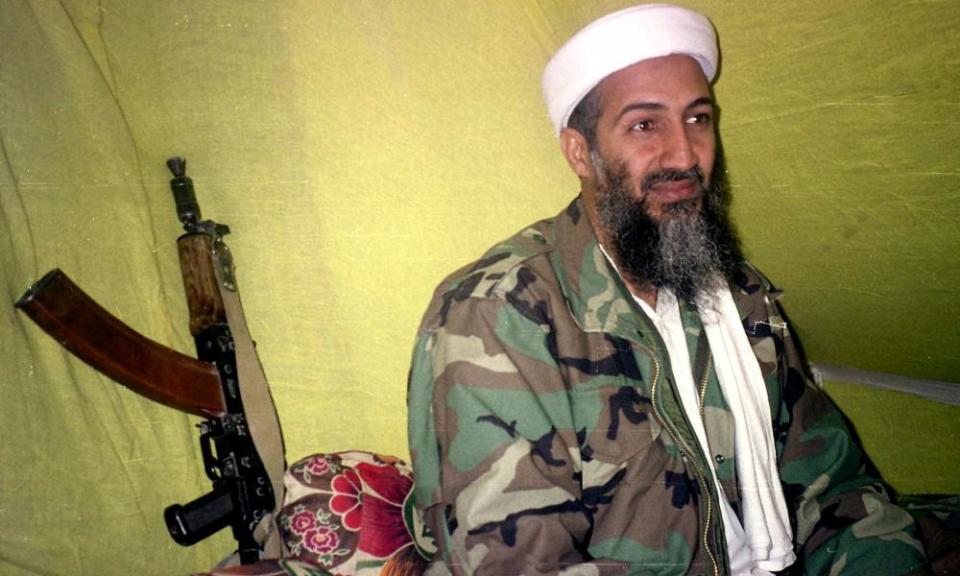Nine Lives: My Time as MI6’s Top Spy Inside Al-Qaida – review

When the Taliban regime in Afghanistan collapsed in November 2001, journalists who had been waiting in parts of the country outside the Islamist regime’s authority or in neighbouring Pakistan rushed to bombed-out and deserted training camps where al-Qaida had built the strike force that had carried out the 9/11 attacks.
I was in the eastern city of Jalalabad as opposition forces still skirmished with al-Qaida remnants on the evening of the city’s fall. After a night in the one functioning hotel, I drove a few miles down the rutted road to Kabul. On several reporting trips into Afghanistan under the Taliban I had heard of a training camp near a reservoir called Darunta, a mile off the main road. It wasn’t hard to reach: a complex of mud huts and barracks down a short road.
Darunta plays a key role in the extraordinary story told in Nine Lives. It is rare that western secret services place an agent within an organisation such as al-Qaida. It is rarer still that the identity of that agent becomes known. It is unprecedented that any such individual publishes a detailed memoir of more than a decade of his activity at very nearly the highest possible levels of Islamist militancy.
Aimen Dean – not, inevitably, his real name – tells the story well. He has been ably assisted by Paul Cruickshank, a US-based researcher and journalist who has both a deep knowledge of the subject and the ability to transform the raw material of an agent’s memories into something digestible to the general public. (The other contributor, Tim Lister, is a CNN reporter with long experience in the topic.)
Much is gripping ... but above all it is the human story that captivates. Dean ends up spying on his own family
Nine Lives works on many levels: as a human story of faith, violence, trauma and eventually a form of redemption, a deep dive into the inner workings of one of the most infamous terrorist organisations of all time and as a short history of the threat that we still face. Dean recounts his early life in Saudi Arabia, and how he is drawn into a religious study group that appears innocent but goes on to produce a large number of high-level militants. By 1994, still a teenager, he is in Bosnia, fighting with committed Muslims alongside Croats. He is involved in battles and atrocities. These mark him permanently but reinforce his commitment to the struggle to defend the Ummah, the global community of Muslims, against the supposed aggression of the west and its local allies within the Islamic world. He travels to Afghanistan, and to Darunta, where he becomes involved in the attempted manufacture of chemical and biological weapons. He also joins al-Qaida, and is interviewed by Osama bin Laden himself.
Bin Laden is far from the only top-level militant Dean meets. every major figure active in Islamic militancy in this period – from preachers in the UK through to Khalid Sheikh Mohammed, who planned the 9/11 strikes, and Abu Musab al-Zarqawi, who went on to found and lead al-Qaida in Iraq – feature in the narrative. These are amazing “up-close and personal” portraits of leading figures whose thinking and actions are essential for understanding how Islamic militancy evolved as it did. Particularly significant is the importance of eschatological prophesies to jihadists. For a long time, often well-educated al-Qaida higher command have been thought to have despised such apocalyptic thinking. In fact, Dean points out, the belief that they could hurry the coming of the end times was central to their worldview and strategy.
Yet Dean’s involvement in the manufacture of gas bombs – tested on hundreds of rabbits – worries him. Should such weapons be used on civilians? Is jihad justified at all? Eventually his commitment to the cause wavers. He ends up detained in Bahrain, then passed to Britain’s MI6, who run him as an agent for several years, sending him back to Afghanistan and Darunta. It is an astonishing revelation to learn that the UK had an agent close to the top of al-Qaida, and working in such a sensitive place.
Dean’s accounts of this double life – both before and after 9/11 – offer a fascinating glimpse into the reality of spying. A lot of this is mundane, involving innumerable debriefings in bland hotel bedrooms, but much is gripping. Plots are uncovered. Secret communications are sent. But above all it is the human story that captivates. Dean ends up spying on his own family, and is only reluctantly forced to give up his espionage after White House sources blow his cover in leaks to a journalist.
One thing jars: it’s unlikely that Dean can actually remember the exact dialogue during conversations that occurred almost 20 years before he wrote his account, or that an MI6 officer doodled on a pad during a particular interview in 2003, or how someone answered the phone in 2008. But without such details, even if imagined, any account would be dry indeed.
There is a tragic end to Nine Lives. Dean’s own nephew, his favourite young relative, was not blessed with the author’s remarkable ability to get out of trouble and was killed fighting with Islamists in Syria. At some risk, Dean visits the 18-year-old’s hastily dug grave. He says a short prayer, turns away and does not look back.
• Nine Lives: My Time as MI6’s Top Spy Inside Al-Qaida by Aimen Dean is published by Oneworld (£18.99). To order a copy for £16.14 go to guardianbookshop.com or call 0330 333 6846. Free UK p&p over £10, online orders only. Phone orders min p&p of £1.99

